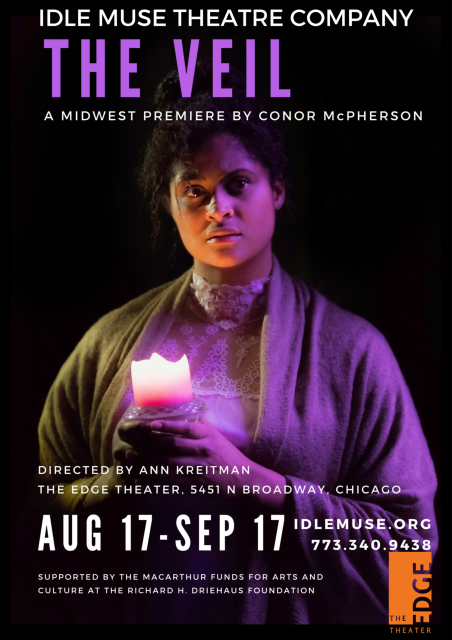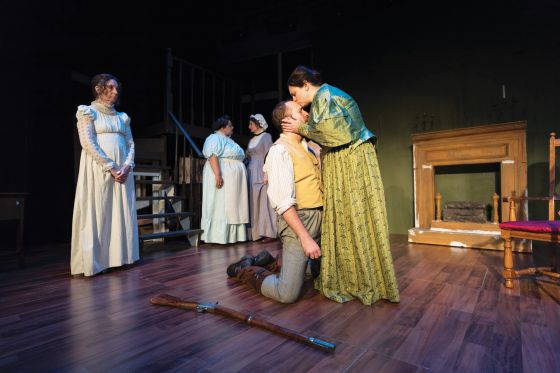

Conor McPherson's earlier plays proposed a news journalist hobnobbing with vampires and a poker game with Satan, so when he proclaims that this one "rests on a fault line between what's real and what isn't," we can't say we weren't warned. His caveat also describes the evolution of English literature in the 19th century, though, and thus may be read as an allegory of the transition from Romantic mysticism to scientific rationalism. Our story is set in 1822, amid the rocky northern provinces of Ireland, in a country house belonging to the Lambroke clan, now represented by the resolute widow Madeline Lambroke, the dotty dowager "Grandie" Lambroke, and the withdrawn Miss Hannah Lambroke. Lord Lambroke's suicide having left his heirs destitute, Hannah's impending marriage to a wealthy Englishman is expected to rescue her kin from penury, even as the prospective bride's propensity for hearing ghostly voices threatens to sabotage the scheme. Exacerbating the domestic tension is the arrival of the Reverend Berkeley and a Mr. Charles Audelle, both hoping to enlist Hannah's powers in pursuit of their queries into spiritualism. Just when we anticipate a nice, shivery, neogothic thriller, however, the dramatic action of The Veil makes an abrupt cosmological turn. We learn that the late Edward Lambroke exhibited behavior nowadays associated with bipolar depression in his final days. Charles is revealed to be addicted to alcohol and opiates. Berkeley's espousal of Transcendentalism has earned him the censure of his church superiors. Their abortive attempt at a seance during a thunderstorm coincides with a fire in the nearby famine-devastated village, whereupon the ladies of the manor cease fretting over their own troubles to concern themselves with those of their tenants. Neurasthenic fancies gradually give way to a practical approach to life's problems. Theater historians preferring to ignore the intervening years between the age of Goethe and Schiller and that of Ibsen and Chekhov, audiences in 2017 may find themselves confused at confronting two such dissimilar genres portrayed on the same stage, despite the heroic efforts of director Ann Kreitman and a muscular Idle Muse company to guide us through the complex evolutionary progress of McPherson's narrative. Playgoers are advised to take their cue from the extrasensory Hannah—portrayed by Ashley Crowe, not as the traditional tubercular sylph, but a sturdy young woman intellectually capable of more than serving as a mere vessel for wayward phantoms.
